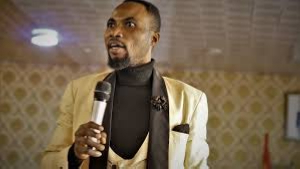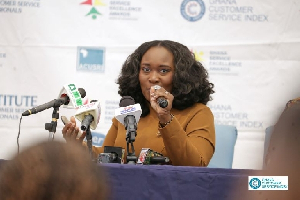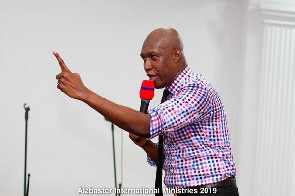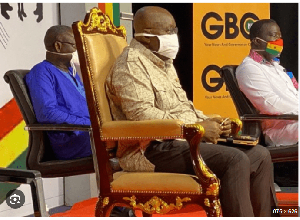Three things these trio share in common amongst other things is their undoubted style, finesse, and respect for music legend, Fela Anikulapo Kuti.
Since the days of King Sunny Ade, Ebenezer Obey, Ayinde Barrister, Victor Olaiya, Orlando Owoh and I.K Dairo to Tony Tetuila, Ruggedman, Eddy Remedy, Eedris Abdulkareem and the immediate past industry influencers, D'banj, TuFace, P-square, Wande Coal, Nice, Naeto C, and Banky W, Nigerian music has never been this popular on the international scene until the lethal triangular attack of Wizkid, Davido, Burna Boy, many liken to Barcelona's trio, Lionel Messi, Andreas Iniesta and Xavi Hernandez.
But for them, perhaps the music industry would have been in hibernation for a period like the movie industry.
Wizkid's music career was launched by Banky W who discovered him at a concert where he served as hype man for the veteran singer, Eldee. Immediately, Banky became a mentor to him and Skales under the label, EME.
After passing through the usual drill most underground artists go through in Nigeria, his big break came in the 2010 classic tune 'Hola at your boy'.
He later described the song as the most important song of his career. Mind you, 2010 was the year M.I's "One Naira" featuring Waje was making waves but it was soon benched for the more swaggy, stylish and soothing voice of the 20-year-old.
Despite being released more than 10-years ago, ‘Hola At Your Boy’ still possesses the kick that takes you back to the old days.
He released "Tease Me/Bad Guys", "Don't Dull", "Love My Baby", "Pakurumo", and "Oluwa Lo Ni'' back to back, all were also successful, making his Superstar album the most highly anticipated Nigerian album of 2011.
With this level of creativity came the awards. The awards kept trickling until his time with longtime mentor, Banky W expired. He left to create StarBoy Entertainment.
While Wizkid was doing the most and grabbing the attention of Nigerians and the African market at the time, Davido, son of billionaire businessman, Adedeji Adeleke, was in Atlanta, USA, grinding and preparing to hit the industry from the rare.d
He succeeded in doing so. He smartly collaborated with the man of the moment at the time, Naeto C to produce “Back When” in 2011. That song was a monster hit. Despite the accusations that Davido bought the collaboration for one million naira at the time, the time has justified his investment.
“Back When” became a national anthem and there was Davido’s entry into the industry.
Davido went on to release a host of other songs that suggested he had come to stay.
The most popular being "Dami Duro" and "Gobe". During this period, Wizkid and Davido had become so powerful in the industry, their fanbase extended far and wide across the economic, political, and cultural divide.
The ghetto youth and creme de creme craved them and declared support for at least one of them which sparked a conversation on who was the best amongst them. They were just around the same age when they both got a grasp of the industry - this also made the rivalry more intense.
Backed by his father's wealth, music lovers suggested Davido had an upper hand against his rival, however, WizkidFC (The fanbase of Wizkid) was not having it.
Their substitution into the scene retired the more experienced legs. Just like every football team, the coach (Nigerians) benched the old legs - D'banj, 2Face, P-Square (now defunct), and the others listed above to introduce the flesh legs.
But for Wizkid and Davido, the Nigerian music industry wouldn't have made this significant stride. Before they came, our industry wasn't as big as it is now. The afrobeat genre was passive. Nigeria's only big break with regard to foreign collaboration was P-Square x Rick Ross, D'banj - Snoop Dogg, and D'banj Kanye West. Now, the Western World cannot get enough of African music.
Like the decades of dominance of Cristiano Ronaldo and Lionel Messi in football, Wizkid and Davido have not only dominated the music industry in Nigeria, they have done so in Africa and on the globe stage, perhaps, in grand style.
Between them, they share multiple awards including The Headies, Nigerian Entertainment Awards, AFRIMA’s, MOBO’s, Ghana Music Awards, KORA Awards, MTV Africa Music Awards, Channel O Awards, World Music Awards, and BET Awards just to name a few.
Their music shattered records on international music platforms - placing them in a fairly comfortable financial spot. The millions of streams they generated made them attractive to the U.S market.
Not long afterward, they started international collaborations. Over the years, Wizkid has managed more than thirty-five (35) A-list collaborations including Beyonce, Drake, Akon, Major Lazer, Kranium, and Skepta.
Davido, on the other hand, has featured more than twenty-five (25) including Fabulous, Meek Mill, Sean Kingston, Russ, Summer Walker. They both have featured Chris Brown and R. Kelly.
In the midst of all the numbers and successes chalked by this duo, there is Burna Boy. The Africa Giant started off in 2012 with “Like to Party”, a year after Davido and two after Wizkid. He was then under Aristokrat record.
Burna Boy’s growth was subtle, it was progressive and organic. He evolved from his original afro-dancehall style to what we know now. Despite releasing a few songs after his departure from Aristokrat record in 2014, it was alleged that he wasn’t successful until he signed with Bad Habit/Atlantic Records in the United States and Warner Music Group internationally in 2017.
Many, including myself, didn't know Burna Boy was going to be this successful but he has proven himself worthy.
He produced more conscious music backed by a solid management team led by his mother, Bose Ogulu, who had acquired the needed experience after working closely with the late Fela.
Fela's influence on Burna Boy's music became a stench that he constantly had to defend his originality, especially on social media whenever opposition fans wanted to tickle him. He lost his cool more often than we can count and this made his go on a regular hiatus.
That aside, Burna Boy has evolved over the last couple of years. Like Xavi Hernandez, Burna Boy created a cone-like attacking system with him at the base, supporting Messi and Iniesta.
His last album, “The Africa Giant” broke some records with the nineteen (19) well-crafted songs. About 80% of those songs were hits songs that appealed to the ordinary Nigerian, the Grammy Academy Board as well as President Obama and Michelle Obama.
Burna Boy's numbers on iTunes, Youtube and Tidal, are a reflection of his self-imposed brand name "The African Giant".
His recently released album, Twice as Tall is another work of art. The album, co-produced by American superstar, Seam Combs and released in August gained worldwide acclaim despite the bite of the novel Coronavirus pandemic. The numbers are right on track and it can only get better.
The future of Nigerian music lies in the hands of these three, at least, until Joe Boy, Fireboy, Rhema and the new "new" skull tell us otherwise. Write to us if you think we have the best front three.
Africa Entertainment News of Wednesday, 23 September 2020
Source: mynigeria.com













